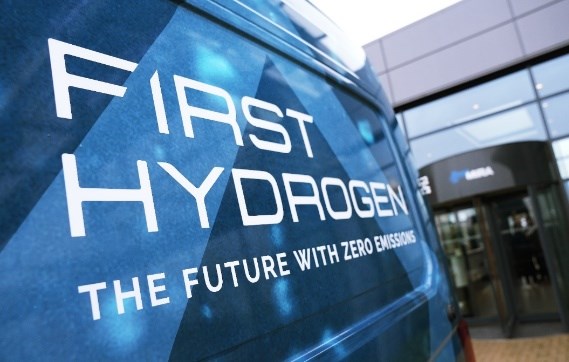First Hydrogen Corp. has announced a major step in its global expansion by targeting the European market.
The company has partnered with several international firms specialising in renewable energy, infrastructure, and mergers to support the growth and expansion of its hydrogen fuel cell vehicles.
The company plans to establish an office in Germany, a country known for its advanced technology and leadership in the automotive industry.
This move aligns with First Hydrogen’s mission to introduce its hydrogen fuel cell vehicles to the European market, positioning itself as a key player in the growing hydrogen economy.
Germany is an ideal starting point for First Hydrogen’s expansion, given its significant focus on hydrogen technology.
The country is home to major automakers like Volkswagen, BMW, and Mercedes-Benz, which align perfectly with the company’s goal of promoting hydrogen-powered vehicles.
Germany’s national hydrogen strategy
In 2020, Germany unveiled a national hydrogen strategy aimed at promoting green hydrogen as a primary energy source. This shift is part of the country’s larger goal to reduce its reliance on fossil fuels.
In late 2023, Germany took another step forward by drafting legislation for a 9,700-kilometer hydrogen highway.
This network will use existing natural gas infrastructure to support hydrogen transportation and distribution across the country, similar to the extensive autobahn system.
Germany is already home to 17 hydrogen hubs, known as ‘Hydrogen Valleys,’ which are either operational or in development.
These hubs are designed to foster the production, storage, and use of hydrogen, and will play a crucial role in building a fully integrated hydrogen ecosystem.
First Hydrogen’s entry into Germany is well-timed, as the country’s hydrogen infrastructure continues to grow rapidly, creating opportunities for the company’s hydrogen fuel cell vehicles to enter the market.
First Hydrogen’s role in Europe’s hydrogen ecosystem
Europe has made significant progress in building a hydrogen economy, with the European Commission approving multiple Integrated Projects of Common European Interest (IPCEIs) for hydrogen development.
These projects, valued at €43bn, are intended to support over 120 hydrogen initiatives across the continent, covering everything from production to end-use.
Germany alone has committed €4.6bn to these efforts, making it a central player in Europe’s hydrogen transformation.
First Hydrogen’s entry into the German market positions it to benefit from this growing hydrogen infrastructure.
The company’s hydrogen fuel cell vehicles have already proven successful in trials in the UK, and now, First Hydrogen aims to replicate that success across Europe.
Supporting Europe’s net zero target
The European Union has set an ambitious goal to achieve Net Zero carbon emissions by 2050, and hydrogen is central to this strategy.
First Hydrogen’s expansion into Europe, and particularly Germany, reflects its commitment to supporting Europe’s clean energy targets.
The company’s innovative hydrogen-powered vehicles provide a practical solution for reducing carbon emissions in transportation, helping countries meet their sustainability goals.
Growth strategy and stock options
The company has announced the award of 2,050,000 incentive stock options to its directors, officers, and consultants.
These options have an exercise price of $0.40 per share and will expire five years from the grant date. The issuance of these options is contingent upon approval from the TSX Venture Exchange.
As First Hydrogen continues its expansion into the European market, further developments are expected, particularly regarding its role in Germany’s hydrogen infrastructure.
With its cutting-edge fuel cell technology and strategic positioning, First Hydrogen is well on its way to becoming a leader in the global hydrogen economy.







